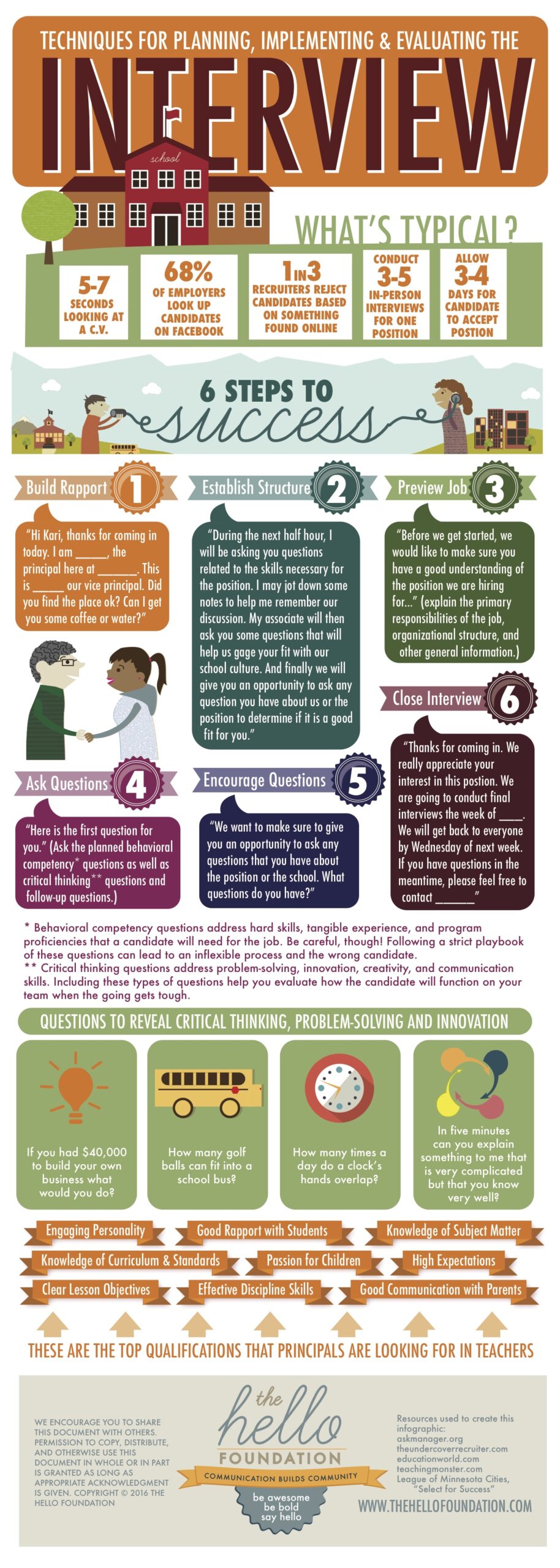Hiring for pediatric healthcare jobs & highly qualified school staff can be a significant challenge for any school administrator. We recently covered how to wrangle your district’s Google and social media presence to attract top talent. But now that you’ve got them in front of you, how do you figure out if they’re the right fit for your team? Our new “Techniques for Planning, Implementing, and Evaluating the Interview” infographic has the answers you’re looking for.
6 Steps for Conducting Successful Interviews
We use the following six steps to ensure a successful interview:
Step 1. Build Rapport
Interviews are stressful! As the interviewer, you want to see and hear what the interviewee has to offer when they’re at their best, and who is at their best when they’re nervous and stressed? No one! You can help take the edge off by breaking the ice and doing your best to calm your nerves.
Step 2. Establish Structure
Knowing what to expect will also help to center and calm your interviewee by giving them a preparatory set and a framework for what’s happening. Again, the aim here is to give the person the opportunity to put their best foot forward by giving them an idea of what to expect from the interview.
Step 3. Preview the Job
Often, job postings are somewhat general and vague and don’t give the details that interviewees really need to make an informed decision. This is your chance to give lots of details about the position, especially those you know are potential deal-breakers or have been problematic in the past.
Step 4. Ask Questions
This is where you get to ask what are called “behavioral competency” questions of your candidate. When people think of an interview, this is usually what they’re thinking about. Be mindful that you’re asking questions that are relevant to the job and that will give you real information about whether the person is a good fit.
Step 5. Encourage Questions
Show your candidate that you’re an organization open to questions and values their voice by allowing them to interview you, too. We recommend that those looking for speech language pathologist jobs, in particular, go into their interviews seeking answers to critical questions.
Step 6. Close the interview
Finish your time together by sharing what the interviewee can expect from you in terms of communication and timelines, as well as who to contact if they have further questions. Leave things on a positive note, and thank them for their time and interest.






